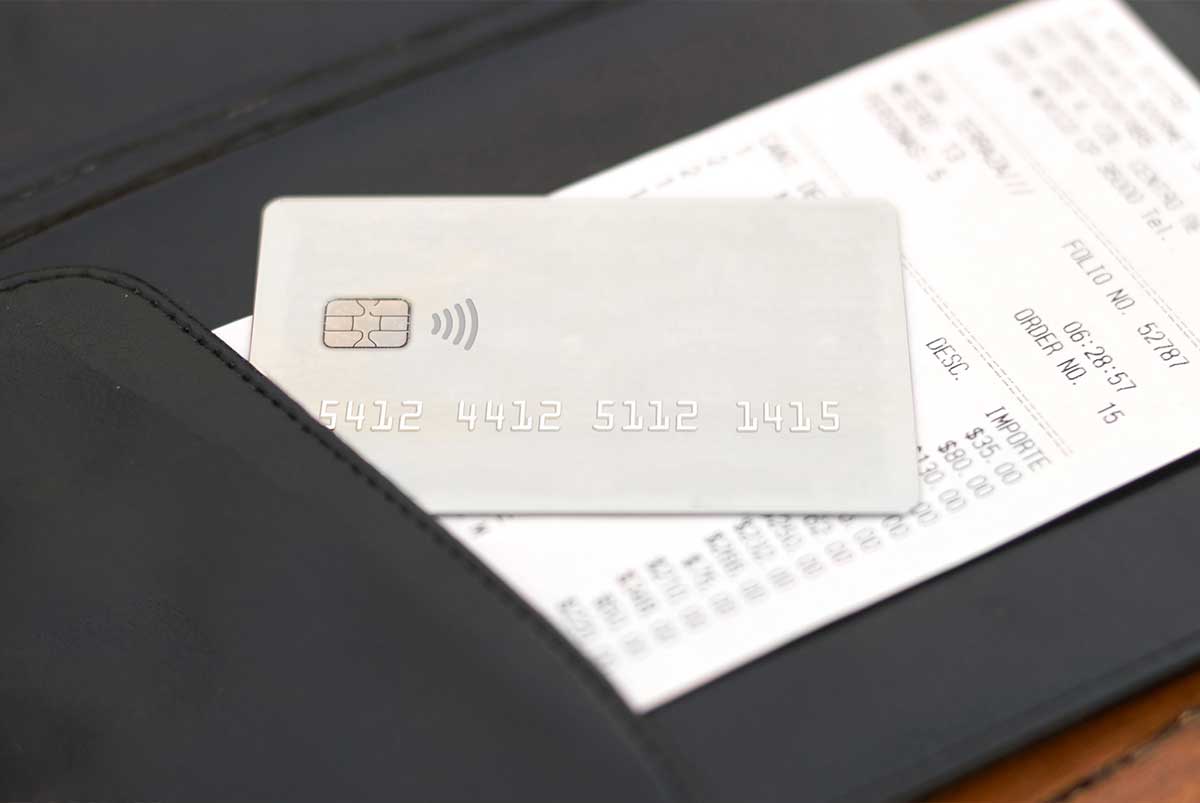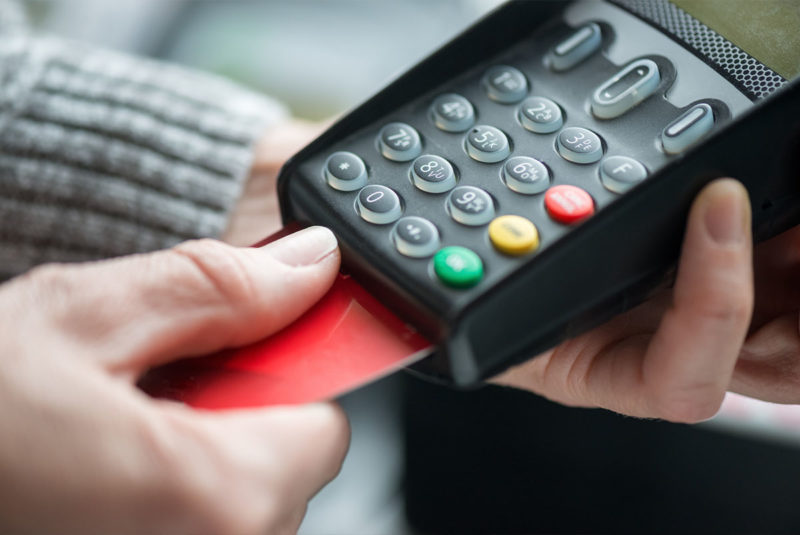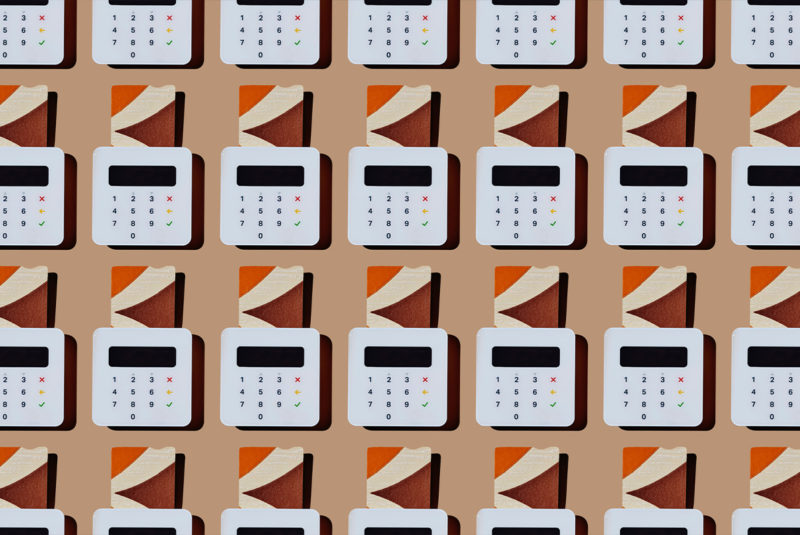You’ve heard your friend rave about their travel rewards card, which lets them escape to Hawaii for free each year.
And you’ve heard about the money your friend saves with their cash back credit card, which earns them money back on every purchase they make.
You’d like to visit Hawaii, and you’d like to get cash back – but you’d also like to avoid the murky pit of credit card debt.
So, how does a credit card work? And should you get one?
How Does a Credit Card Work?
You can think of a credit card like a short-term loan from a credit card issuer.
Unlike a debit card, which takes money from your checking account, a credit card uses the issuer’s money and then bills you later. This also makes them a stronger ally in cases of fraud.
Because your card activity is reported to the credit bureaus (which doesn’t happen with debit cards), using credit cards responsibly can help you build good credit. This credit history will help you when it comes time to apply for bigger loans like a mortgage, or when you’re applying for a job or apartment.
Credit card vocabulary 101
Here are some terms that will help you really understand how credit cards work:
- Credit limit: The amount of money you can spend on your card at one time, or the size of your ongoing loan. It’s determined by the credit card issuer. The better your credit and the higher your income, the higher your credit limit may be.
- Balance: How much you’ve spent on your card and haven’t paid back (also known as credit card debt). If you’ve made $300 in purchases – and haven’t yet paid it off – your credit card balance will be $300.
- Available credit: How much you can spend before you hit your credit limit. If your credit limit is $1,000, and you have a balance of $300, your available credit is $700. If you make a $200 payment, it’ll go back up to $900. (This is why it’s called a “revolving” line of credit.)
- Billing cycle: A set period during which you make purchases. After the period is over, you’ll receive a bill, and will have about a month to pay it.
- Statement due date: A date on your statement (credit card bill) by which you must pay at least the minimum amount due to keep your credit card account in good standing.
- Minimum payment: The amount of your credit card bill that you’re required to pay each month, which is usually a small percentage of your total balance. If you don’t make your monthly payment by the due date, the issuer can charge you a late fee. If the payment is late enough, it may report a “late payment” to the credit bureau – a mistake that can stay on your credit reports for seven years. Though you should always make at least the minimum payment, we recommend paying your statement balance in full to avoid interest charges.
- APR: This stands for annual percentage rate. If you don’t pay your statement balance in full each month, this is the interest rate you’ll pay on that remaining debt after the statement’s due date.
How Much Does Credit Card Interest Cost?
When you hear about the evils of credit cards, it’s generally because of the sky-high finance charges (interest and other fees) they bestow on cardholders.
And it’s true. With an average APR of 14%, making just the minimum payment can quickly cause your balance to spin out of control, leading to the crushing avalanche known as credit card debt.
If you charge $3,000 to a credit card with a 17% APR, for example – and only pay the minimum each month – it’ll take you 10 years to pay off your initial balance, by which time you’ll have paid more than $2,200 in interest. Not cool.
But here’s the thing: when you pay off your statement balance in full each month, you can completely avoid paying any interest.
That’s because most credit card companies don’t charge any interest until after your statement’s due date. So if you pay the bill in full, you won’t pay a dime in interest. This “grace period” is one of the best things about responsible credit card use.
Try thinking of your credit card as if it were a bit more like a debit card, something that would take money directly from your bank account. It could help to imagine having a separate checking account – every time you make a credit card purchase, you could transfer that amount to the second account; and then at the end of the month you’d have enough in that second account to pay the full statement balance. This strategy probably isn’t too practical, but it should help illustrate the point.
What Fees Do Credit Cards Charge?
Interest aside, credit cards do have other fees to be aware of, including:
- Late fees: The issuer charges these when you don’t make your minimum payment by the statement due date.
- Annual fees: On certain cards, the issuer charges this once a year to cover the benefits provided by the card. For your first credit card, however, we recommend looking for one without an annual fee. (That’s because you should keep it open for as long as possible – without worrying whether you’re getting enough value from the annual fee.)
- Cash advance fees: If you choose to take out cash with your credit card, you’ll pay hefty fees. We strongly advise against using a credit card for cash advances – if you don’t have the money, don’t use your card.
- Balance transfer fees: If you transfer a balance from another credit card, which can be a smart strategy with 0% APR cards, you’ll often pay a fee equal to a percentage of the balance transferred.
- Foreign transaction fees: When you make purchases in another currency, the issuer may charge a fee – so if you travel abroad frequently, you should look for a card without foreign transaction fees.
What Types of Credit Cards Are Available?
The world of credit cards is vast, and different credit cards are right for different people.
In addition to your standard bank-issued credit card, here are a few other common card types:
- Rewards credit cards: Just like they sound, these cards offer rewards for their users, including cash back, statement credits, or points for flights and hotel stays. You may not be able to qualify for the most rewarding cards at first, but if you use your first card responsibly you should be able to qualify for better, more rewarding cards over time.
- Secured credit cards: Whereas most credit cards are “unsecured,” secured cards are meant for riskier borrowers so they require a security deposit to be approved. You’ll make a deposit upfront (say $500) that will then serve as your credit limit. Secured credit card payments are reported to the credit bureaus, just like most unsecured cards, making them an easy way to build credit.
- Charge cards: These are very similar to regular credit cards, with one main difference: they don’t have a traditional set credit limit, although you’ll still have a limit to how much you can charge to the card at once. But you can’t carry a balance from month to month – and you must pay the statement balance in full by the due date, every time. (Which, as you recall, you should be doing anyway!)
How Can You Get a Credit Card?
To get a credit card, you must complete an application on the credit card issuer’s website. It’ll ask for basic information, including your income and Social Security number.
The issuer will then check your credit scores and reports. If, based on that information, it thinks you’re a good fit for that particular card, it’ll approve your credit card application; if not, it’ll deny you.
If you’re denied for a credit card, don’t despair. That’s simply a sign that A) you applied for a credit card that didn’t fit your credit profile, or B) you need to establish better credit.
Some card issuers may have particular terms as well, like Chase’s unpublished “5/24” rule. This means you won’t qualify for most Chase cards if you’ve opened five new credit accounts in the last 24 months. Rules like these can prevent you from being approved even if you have great credit.
To see which credit cards you have a higher likelihood of getting approved for, you can check issuers’ websites for prequalified card offers. These are free, and checking for them won’t hurt your credit at all. Your private offers might even be better than the public offers.
If you apply for several unsecured cards and you’re not approved, you should focus on improving your credit with a secured credit card or credit-builder loan.
When you visit MoneyTips, we want you to know that you can trust what’s in front of you. We are an authoritative source of accurate and relevant financial guidance. When MoneyTips content contains a link to partner or sponsor affiliated content, we’ll clearly indicate where that happens. Any opinions, analyses, reviews or recommendations expressed in our content are of the author alone, and have not been reviewed, approved or otherwise endorsed by the advertiser.
We make every effort to provide up-to-date information; however, we do not guarantee the accuracy of the information presented. Consumers should verify terms and conditions with the institution providing the products. Some articles may contain sponsored content, content about affiliated entities or content about clients in the network. While reasonable efforts are made to maintain accurate information, the information is presented without warranty.
Are Credit Cards a Good Idea?
When used correctly, credit cards can be a wonderful addition to your wallet. They have a number of great features:
- Help build your credit
- Allow you take out interest-free “loans”
- Earn valuable rewards
- Provide shopping benefits and travel perks
- Let you worry less about fraud
Before applying for a credit card, however, you should first consider whether you’ll be able to use it responsibly. Will you only charge what you can afford, so you can pay the balance on time and in full each month?
If that sounds difficult to you, credit cards may not be for you – and could cause a spiraling cycle of credit card debt.
But if you can embrace the intelligent use of credit cards, they’re a powerful financial tool that can serve you for years to come.
The Short Version
- Credit cards let you borrow money up to a set limit, which must be repaid
- You’ll be charged interest on your credit card purchases if you don’t pay your full statement balance by its due date, and you’ll often be penalized for late payments
- Positive payment history can help build your credit scores because your card activity is reported to the credit bureaus




